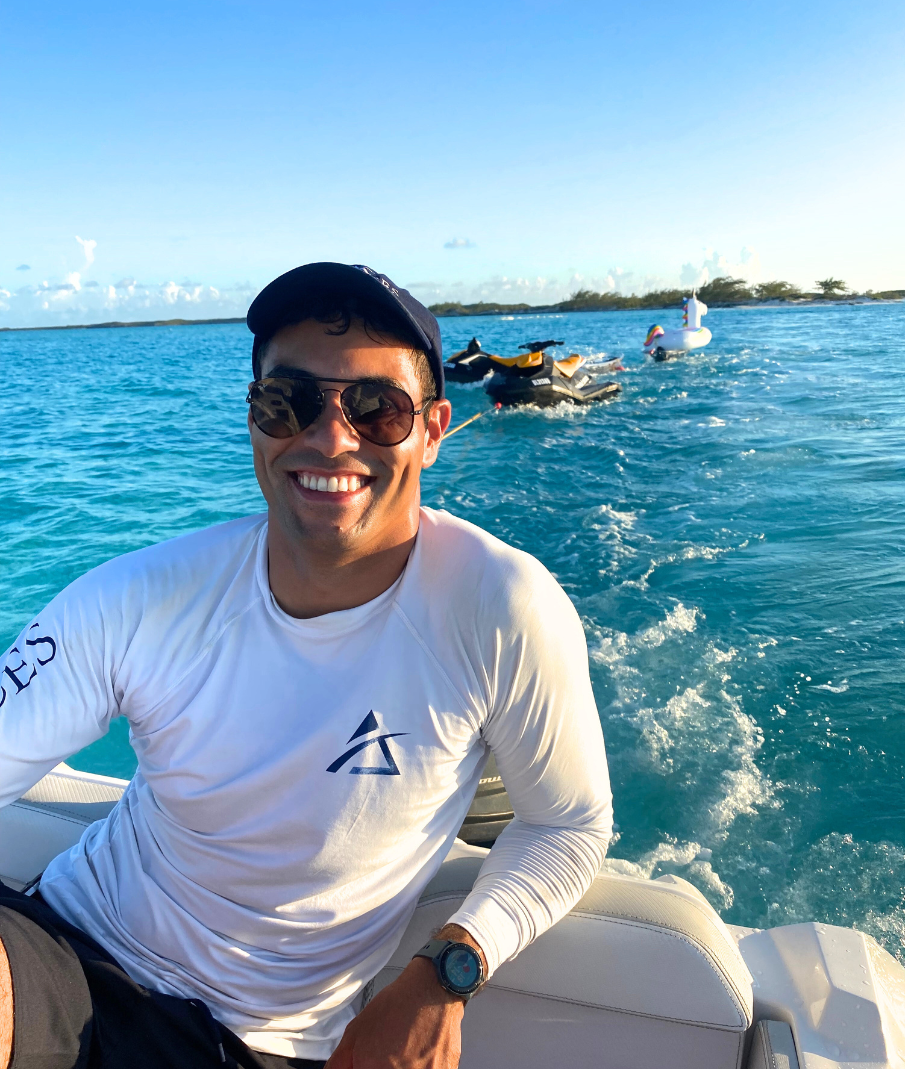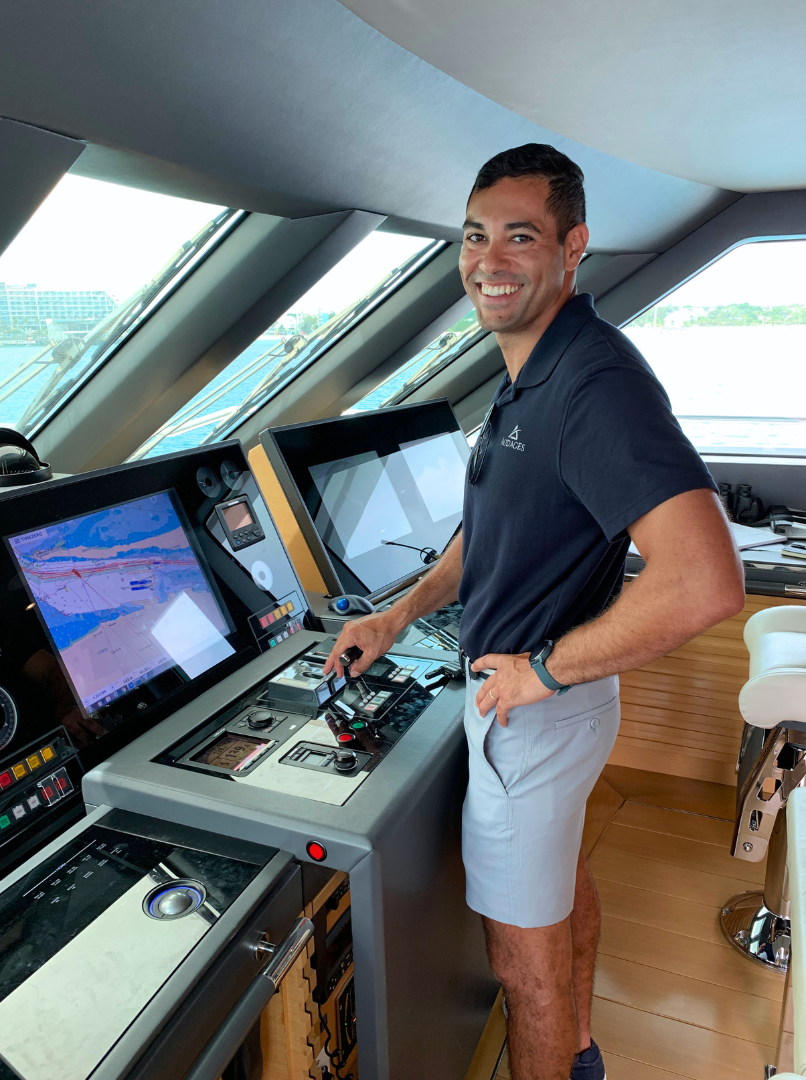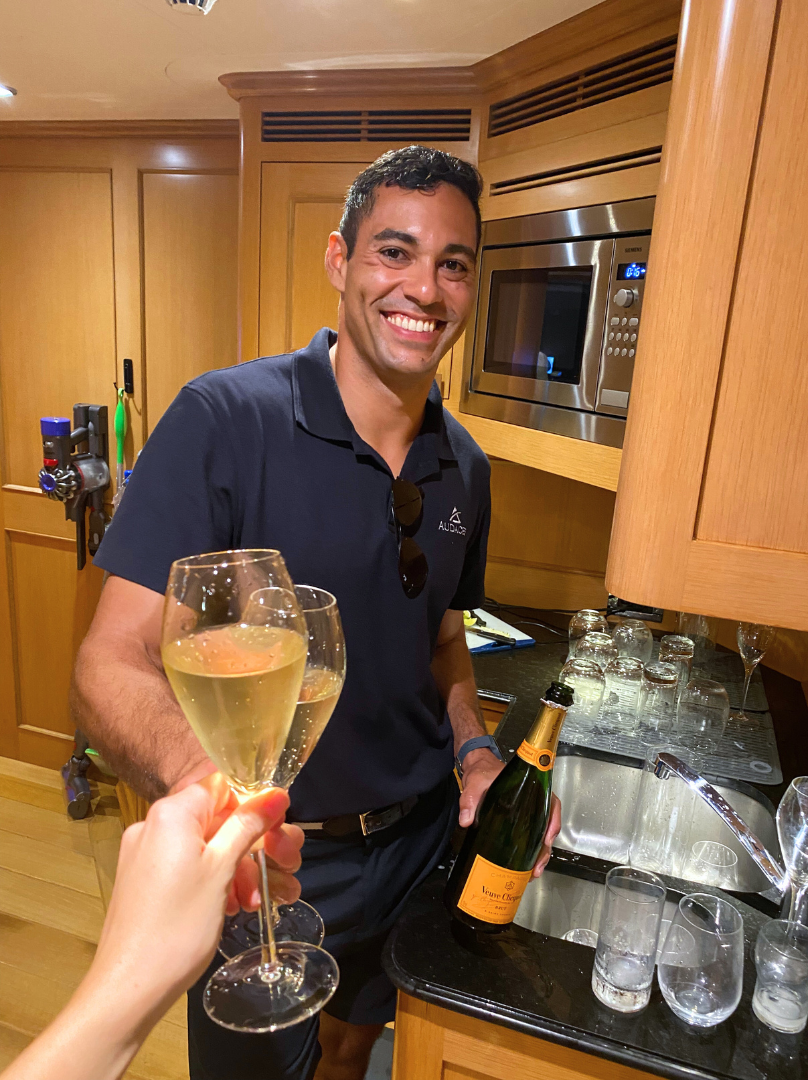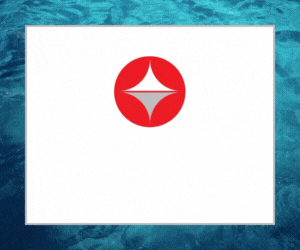In this month’s Life After Yachting feature, we speak with Hugo Ortega, founder of Superyacht Sunday School. Hugo loves the challenge of trying new things and testing himself, and dedicated his life to travelling when he realised studying Engineering wasn’t for him. He learned a few languages – Spanish, English, Italian, and a little French – and even though he didn’t know how to swim at first, became a Yachtie! He loves visiting and living in Southeast Asia.
Here, Hugo speaks about his long stint on superyachts and how he addresses knowledge gaps in the industry with his current business.

How long did you work onboard? What was your role and which yachts did you work on?
I worked on Superyachts for over 8 years in the Deck Department. I started as a Deckhand on a 50m called Tsumat. I spent a large amount of time aboard an 88m Fountainhead, working Deckhand to 2nd Officer. I’ve also on the 55m Fortunate Sun as 2nd Officer. I temped on a lot of vessels throughout COVID-19, but my last position was Captain aboard a 90ft called Muse.
When did you leave the Superyacht industry and what were your reasons for leaving?
I stepped off my last permanent position in November 2022 to work Full-Time on my own business, Superyacht Sunday School. I love working on Superyachts and the travel / lifestyle is very addictive.
With my licenses and experience, I know that Yachting is something I can always come back to, even temporarily. But I saw a huge need in the market for new (and even experienced crew) to get guidance and coaching from experienced Yacht crew rather than continuously reinventing the wheel every generation.
Before leaving, did you plan an exit strategy?
Not really, to be honest.
I knew I’d be leaving the industry while working on my last Yacht. I saved up as much as possible, but I didn’t have a number or deadline to exit. When it felt like I needed to focus more on my own project full-time, I leaped. The more you think about it, the harder it is to leave Yachting. We call it the “Golden Handcuffs” for a reason!
“The more you think about it, the harder it is to leave Yachting. We call it the “Golden Handcuffs” for a reason!“
Most important lesson you learnt as a crew member that you now apply to day-to-day life on land?
I’m going to cheat and use two, because they both came to mind at the same time.
The first one, the workday is never over. Working on Yachts, we all know how often a 5 o’clock finish runs into the later hours of the evening. Whenever you think you’re done, there’s always something else you can do.
I think the same applies to my life and current business. At the beginning of a start-up, it’s so important to make sure that countless duties are being carried out since you can only delegate so much! But when you’re working for yourself, it’s nice to be the one who finally decides when the day is over.
My other biggest lesson is to be adaptable. In Yachting, we repeatedly throw ourselves into completely foreign situations where nothing is familiar. The ability to react and adapt quickly is what sets apart successful crew from those that leave within the year. I think that this emphasis on always being uncomfortable and needing to learn has helped me in this new business and new industry.

What is your current job role, and where are you based?
I’m the Founder and CEO of Superyacht Sunday School. I’m not really based anywhere. The business is completely online and I ran it in 2023 from Southeast Asia (primarily Thailand and Vietnam) while living in different places. I’m still deciding where 2024 will take me.
Who says that you need to be on a Yacht to travel while you work?
Can you tell us more about Superyacht Sunday School and what you do on a day-to-day basis?
Superyacht Sunday School is an online course, community, and coaching program for Yacht Crew. Our differentiator is the personalised experience and 1-on-1 type of guidance I offer. On the same note, I also do Yacht Recruitment and even Management. I oversee two vessels currently in Fort Lauderdale.
For new crew, it’s a completely step-by-step walkthrough of how to enter the industry and how to find a job. I work 1-on-1 with new students to decide which certifications make the most sense for their specific needs, help them design a proper Yachting CV, and how to find their first job.
For both new and current crew, I offer a community where I regularly hold meetups, live trainings, answer all of their questions, and continuously give any support they need. For experienced Crew, I also offer CV help, career coaching, and recruitment services.
My day-to-day rotates among creating content for our Social Media channels, supporting my students and reviewing their work, holding 1-on-1 consultations, and group coaching. I do a bit of everything!
“Superyacht Sunday School is an online course, community, and coaching program for Yacht Crew.“
The good, the bad and the ugly parts of transitioning from yachts to shore?
The good: I’ve always been an independent person and taking orders that don’t make sense are very difficult to swallow. After working for a few lunatic Captains, it’s quite nice to know that I get to choose my destiny. If I don’t want to do something, I don’t.
The bad and ugly: As a Yachtie, you get used to instant gratification. 7 days of charter hell? Here’s a $3,000 tip. Don’t like your current Yacht? Here’s an email from Yotspot with a dream gig. Tired of the port you’re docked at? Don’t worry, you’ll be gone tomorrow.
Working for yourself, it can be trying at times to wait for investments to pay off or to reap the benefits of the strides you’re working towards. But every day, I’m trying to make sure that I stay focused on just moving the needle forward and having more long-term vision.
What is the hardest struggle you have faced since leaving the industry, and how did you overcome it?
Running your own business comes with a lot of challenges, especially when it’s online. Motivation is the hardest struggle. While traveling, it’s very tempting to want to do something fun like sightseeing or having too much fun and end up spending too little time on work.
It can be easy to fall into “I deserve this,” type of mindset. I’m doing my best to balance enjoying life and the benefits of working for myself while also realising that if I work hard now, I’ll be able to enjoy more later. I have to keep myself focused on the future.
Read more: Life After Yachting: Ex-Stewardess Turned Yachtie Health Coach
Did you have any other career options in the back of your mind when you were considering your life after yachting?
At first, I considered a few options like returning to school for a Master’s in Naval Architecture or something like that. I have an Engineering background so I thought about combining my experience on Yachts to transition into a more technical or design-related part of the industry.
The more I thought about the time commitment and money I’d need to invest, all my options kept returning to online entrepreneurship instead.
If you could return to the start of your yachting career, would you change anything?
I’m not big on regrets. I spent a lot of time-based in Miami early on, and I think that’s pretty killer on a Deckhand salary. If I went back, I’d go out and spend less and save more. But damn, we had fun.
I also worked seasonally on a couple shit show programs with unprofessional Captains. If I knew how terrible they were, I wouldn’t have accepted the job. But on the other hand, these might be the people that helped inspire me to create Superyacht Sunday School, so I think everything played out perfectly.
What kind of positive changes would you like to see in the industry?
To be completely transparent, I’d like to see a lot of companies that take advantage of new crew disappear and go out of business. There are so many companies worldwide that are misleading crew and charging them thousands of dollars for really subpar training.
I know this because my inbox is full of students complaining about getting taken advantage of and still not finding work. My mission is to help crew in the industry get more informed and have some of the power shift into their hands. An empowered workforce will help us both raise the bar of how Yachts operate and also lead to more crew retention and happiness.

What does success mean to you and what is your career vision for the next 5 years?
Success to me is being able to design a life that I want to live – doing what I want, when I want, where I want, and how I want. The plans are to earn much more than I ever could have while on a Yacht and to continue traveling the world. Working online is already allowing me to do so and I plan to continue growing past my wildest expectations.
In the next 5 years, I have no doubt SSS will explode into a giant powerhouse with crew. We’ll offer training to Yacht crew in countless topics and subjects, not just limited to courses or certifications but any topics that crew need to learn about.
Lastly, can you share 3 pieces of advice for crew members thinking about their life after yachting.
- Give it your absolute best, and then add another 20%. There are so many people out there running a ton of mediocre businesses. Make sure that yours is something that you care about and are willing to pour yourself into. If not, you’ll soon burn out and just skate by neither here nor there.
- Get a mentor or coach. Whatever the niche or industry, don’t pretend like you know best. Find someone that has done something similar to you already that you can learn from and bounce ideas off. It’s going to speed up your progression by light years.
- Save your money. In yachting it’s common to splurge and “treat yourself” after a long charter, hard season, or stressful workday. Try to give yourself a cool-down period before making large purchases so you remove the emotional side of the decision and can think about it more carefully.
To read more Life After Yachting articles, click here.
If you are interested in featuring in your own Life After Yachting segment, please get in touch via hello@superyachtcontent.com
To keep up to date with the latest Superyacht Content News, click here.
Sign up to our Newsletter below:









.gif)



.gif)





